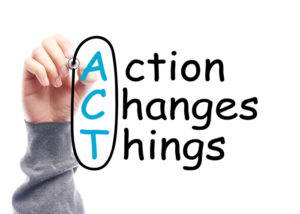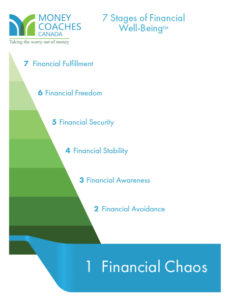
Sabine Lay, certified Money Coach
In the five years that Sabine Lay has been a Money Coach the question she has most frequently been asked is: How do other people manage their finances? Or even, “Am I the worst case you’ve seen?” She says the comparison question arises in one form or another from practically every client.
Give your money purpose
What Sabine tells them is that comparison has no benefits. What she shows them is that being clear on their own financial values and creating goals that give their money purpose, generates the kind of confidence that makes comparison questions unnecessary. Sabine helps her clients develop benchmarks and barometers of “success” of their own making.
Money Coaching was the missing piece in financial service
Sabine grew up in Germany and spent five years living in England before moving to Canada 17 years ago. She was working for an international bank when she found herself becoming dissatisfied with the limitations on how she could help her clients.
“I was frustrated by seeing so many people with good income in debt and struggling to make ends meet. I knew I could help them, but it wasn’t within the mandate of my position to offer that kind of help.”
When she read about Money Coaches Canada in an article in the Globe and Mail newspaper she knew it was the sort of work she wanted to do and from the beginning she knew she would specialize in debt and cash flow management. Sabine also helps her clients ensure they have a solid financial foundation as they prepare for retirement.
Building trust and finding clarity
“My first sessions with an individual or a couple are discussions. Before I can help I need to know what is important to them, and they need to get to know me before they can put their trust in me. The surprise that happens in Money Coaching is the person or couple learns a lot about themselves. Relationships with money are influenced by upbringing and by the culture we live in, but it’s important to look at those influences and question whether they help or hinder our financial well-being.”
 Clients who work with Sabine can expect her to be supportive and positive but honest. She doesn’t sugar coat her advice, but clients often remark on her warmth and sincerity. The greatest benefit of working with Sabine is the level of clarity she brings to the situation. Clients will have: clarity on their current situation (where their money is coming and going), clarity on their financial goals and clarity on the steps needed to achieve those goals.
Clients who work with Sabine can expect her to be supportive and positive but honest. She doesn’t sugar coat her advice, but clients often remark on her warmth and sincerity. The greatest benefit of working with Sabine is the level of clarity she brings to the situation. Clients will have: clarity on their current situation (where their money is coming and going), clarity on their financial goals and clarity on the steps needed to achieve those goals.
“My greatest pleasure as a Money Coach is when I see the pieces of the new plan falling into place and the person or couple is happier and taking control because they have a plan geared to their life.”
Fresh insight and real change
Sabine works with individuals and couples and says that coaching offers different benefits for each.
“I help all my clients define what’s important to them and show them how to make financial decisions based on those values, but for single clients I can also serve as an accountability partner if that is what they need. For couples it is vital to their success that they have the same goals and the same dedication to the process. I can remain neutral and help couples create goals they are both excited about, if both partners are willing and committed.”
Sabine says that someone looking for real change in their financial life will benefit from the fresh insight and expertise of a Money Coach. Although she prefers to think of the road to financial well-being as having challenges not problems, she believes this quote from Albert Einstein makes an excellent point about the value of a different perspective:
“We can’t solve problems by using the same kind of thinking we used when we created them.”
A new way of thinking about your money is just a click away. Contact Sabine for a free consultation








 The base of the 7 Stages of Financial Well-BeingTM pyramid represents those furthest removed from feeling in control and empowered financially. For many, Chaos represents their starting point on their journey to Financial Fulfillment.
The base of the 7 Stages of Financial Well-BeingTM pyramid represents those furthest removed from feeling in control and empowered financially. For many, Chaos represents their starting point on their journey to Financial Fulfillment.

 We also have an increasing number of young clients. Our low minimums, which are ten thousand per fund, have opened that door. But of course we also have many retired clients as well.
We also have an increasing number of young clients. Our low minimums, which are ten thousand per fund, have opened that door. But of course we also have many retired clients as well.